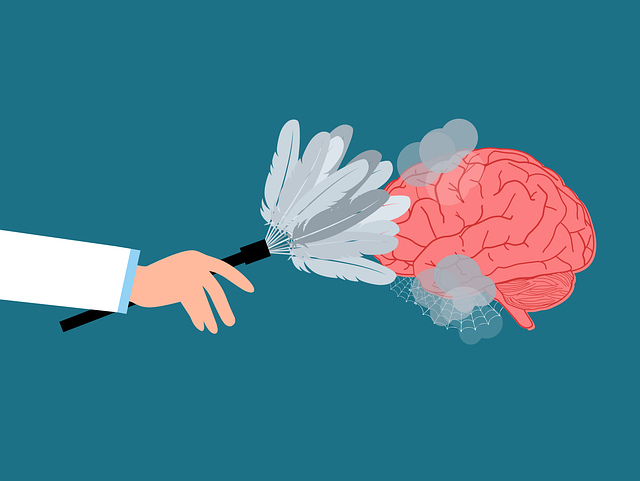Centennial Domestic Violence Therapy offers a comprehensive, tailored approach to protect victims and their children from abuse. They conduct nuanced risk assessments identifying immediate dangers (like weapon access, abusive behaviors) and long-term challenges, using these insights to create personalized strategies. Their holistic support plans include self-care routines, mindfulness techniques, and community education to promote emotional regulation, resilience, and empowerment, addressing both short-term crisis and preventing future abuse. Through continuous evaluation, therapists adapt interventions, fostering significant mental health improvements and helping clients break harmful cycles.
Risk assessment and harm minimization planning are essential components of Centennial Domestic Violence Therapy, helping to ensure the safety and well-being of victims. This article delves into crucial aspects of this process, including understanding risk assessment in domestic violence cases, identifying effective harm minimization strategies, and creating comprehensive plans for safety and support. We explore both short-term and long-term interventions, emphasizing continuous evaluation and adaptation for optimal therapy outcomes.
- Understanding Risk Assessment in Domestic Violence Cases
- Identifying Harm Minimization Strategies
- Creating a Comprehensive Plan for Safety and Support
- Implementing Short-term and Long-term Interventions
- Continuous Evaluation and Adaptation for Effective Therapy
Understanding Risk Assessment in Domestic Violence Cases

In domestic violence cases, risk assessment is a critical component in ensuring the safety and well-being of victims and their children. At Centennial Domestic Violence Therapy, we understand that every situation is unique, requiring a nuanced approach to evaluate potential hazards and plan for harm minimization. This process involves identifying factors that may contribute to danger, such as past or current abusive behaviors, access to weapons, control tactics employed by the perpetrator, and the victim’s support system. By thoroughly assessing these elements, therapists can develop tailored strategies to protect individuals at risk.
A comprehensive risk assessment goes beyond immediate dangers; it also encompasses long-term considerations like burnout prevention for victims and caregivers. Promoting Self-Care Routine Development for Better Mental Health and cultivating Self-Awareness Exercises are essential components of this framework. These practices empower survivors to manage stress, maintain resilience, and make informed decisions as they navigate the complexities of domestic violence and its aftermath.
Identifying Harm Minimization Strategies

Identifying Harm Minimization Strategies is a critical step in any risk assessment process, especially for issues like domestic violence. At Centennial Domestic Violence Therapy, we understand that each situation is unique and requires tailored solutions. One effective approach is to leverage Public Awareness Campaigns Development, which can help educate communities about the signs of abuse and available support systems. By increasing public awareness, individuals are better equipped to recognize and report instances of domestic violence, fostering an environment conducive to prevention.
In addition, promoting Mindfulness Meditation and Mood Management techniques can empower victims and perpetrators alike. These strategies encourage emotional regulation and provide healthy coping mechanisms, potentially reducing the frequency and intensity of violent incidents. By integrating such practices into harm minimization planning, Centennial Domestic Violence Therapy aims to offer holistic support that addresses both the immediate needs of survivors and their long-term well-being.
Creating a Comprehensive Plan for Safety and Support

Creating a comprehensive plan for safety and support is an integral step in addressing domestic violence and its impact on individuals and families. At Centennial Domestic Violence Therapy, we emphasize the importance of tailored strategies that cater to each client’s unique needs. This involves not only identifying potential risks but also implementing robust harm minimization measures. By combining evidence-based practices and Mind Over Matter principles, our therapists guide clients in developing self-care routines aimed at enhancing mental health and resilience.
This holistic approach extends to risk management planning for mental health professionals, ensuring they are equipped to handle sensitive cases effectively. Through structured assessments and regular reviews, we help individuals create safe spaces both within their personal lives and professional settings. Additionally, we promote Self-Care Routine Development for Better Mental Health as a key component of our support system, fostering sustainable well-being and empowering clients to navigate challenging situations with greater ease.
Implementing Short-term and Long-term Interventions

Implementing effective interventions is pivotal in both short-term and long-term harm minimization strategies for domestic violence victims, especially within the context of Centennial Domestic Violence Therapy. Short-term interventions focus on immediate safety measures, crisis support, and emergency services to ensure the victim’s well-being during their initial phase of recovery. This may include temporary housing, legal aid, and access to hotlines offering emotional support and practical advice.
Long-term interventions aim to empower victims and prevent recurrences by addressing underlying issues. Community Outreach Program Implementation can play a significant role in raising Mental Health Awareness and providing resources for victims to cultivate coping mechanisms like Mindfulness Meditation. These strategies foster resilience, promote healing, and reduce the risk of future abuse, ultimately contributing to a safer and more supportive environment for victims of domestic violence.
Continuous Evaluation and Adaptation for Effective Therapy

Effective therapy for issues like Centennial Domestic Violence requires a dynamic approach that involves continuous evaluation and adaptation. This process ensures interventions remain relevant and impactful as individuals and their circumstances evolve. Therapists who embrace this methodology are better equipped to navigate the complexities of domestic violence, where triggers and behaviors can change over time. By regularly assessing progress, therapists can identify areas needing enhanced support and adjust strategies accordingly, promoting more personalized and effective treatment.
Continuous evaluation fosters a culture of learning within therapy sessions. It encourages clients to reflect on their experiences, emotions, and behaviors, enhancing self-awareness. This introspection, coupled with the therapist’s expert guidance, can lead to significant improvements in mental health, including heightened emotional intelligence and boosted self-esteem—crucial aspects addressed by Mental Health Education Programs Design. Through such adaptive practices, Centennial Domestic Violence Therapy can offer lasting support, empowering individuals to break free from harmful cycles and build resilient, healthy lives.
Centennial Domestic Violence Therapy emphasizes the importance of comprehensive risk assessment and harm minimization planning. By understanding the dynamics of domestic violence, identifying specific strategies for each case, and creating tailored safety plans, therapists can empower individuals to break free from abusive cycles. Through implementing both short-term interventions for immediate safety and long-term support for sustained healing, this approach ensures a holistic and effective therapeutic journey. Continuous evaluation allows for adaptation, ensuring that the plan remains relevant and responsive to the evolving needs of those seeking help.














